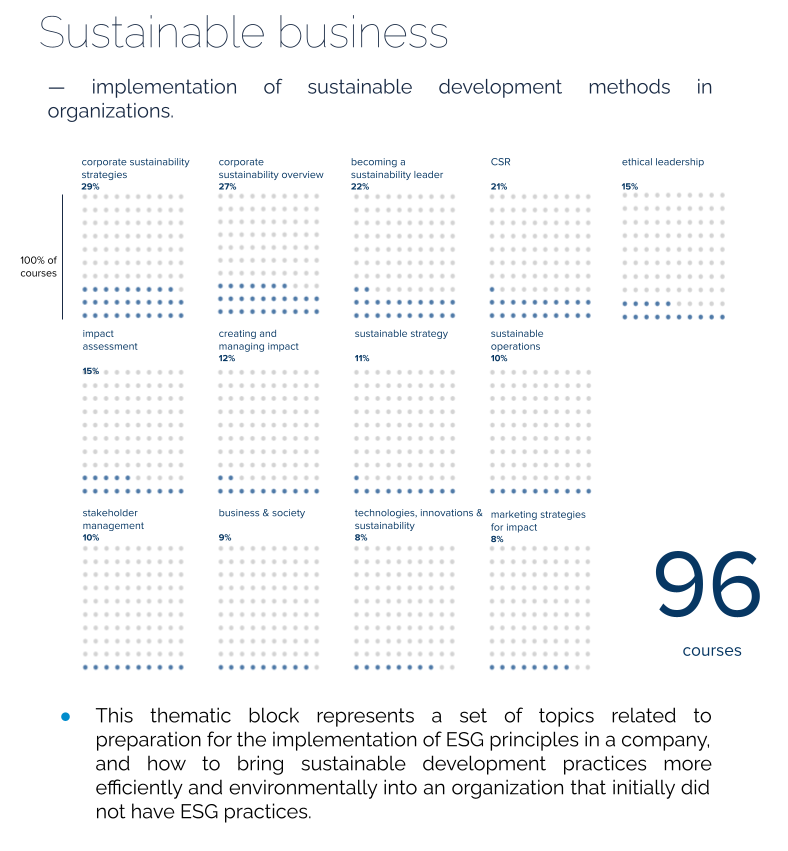
According to a Financial Times article, business schools will prioritize ethics and moral choices in teaching accounting. The decision to rethink education for accountants was made after several crucial financial scandals. These include the collapse with liabilities totaling to £7 billion of British outsourcer Carillion in 2018, a series of corrupt business practices and fraudulent financial reporting at German payments group Wirecard in 2019-2020, and a corruption scandal at the Brazilian oil company Petrobras in 2014-2018. Professors are sure that accountants working for those companies made immoral decisions as business schools and universities treated ethics as an addition to hard-skill courses, such as accounting itself. Thus, now, there is an idea to reimagine education at business schools to emphasize the need not only to consider personal profits while making decisions but also the impact on stakeholders and the environment.
We’ve done research on teaching ESG courses at business schools. As you may see in the picture, courses on Sustainable business topics include 15% of courses on ethical leadership. At the same time, there are more courses that include corporate sustainability strategies, corporate social responsibility, and others. Therefore, one may conclude that business education does not have a focus on ethics, as it comprises only a tiny part of a single topic. In our research, we also analyzed such major topics as Social entrepreneurship, Environmental stability, Corporate governance, and others from the ESG. If you are interested in learning about the structure of ESG programs at leading business schools, you can access our full research: https://get.coursalytics.com/esg-research-request

Debates to shift focus to ethics in accounting courses have lasted for years now, and lot of research was done during this time. In 2020, the Global Journal of Accounting and Finance published interesting research that highlights the demand for ethical education for accountants in universities and business schools (pp. 111-128). Researchers analyzed 59 universities and business schools teaching accounting in the USA. It turned out that almost 53% of the accounting programs in the sample have a stand-alone ethics course, and those stand-alone courses are required just in 63% of them. This research confirms our findings that courses on ethics comprise just a piece of business education programs and demonstrates that the demand for ethics in accounting appeared a long time ago.
Photo by blog.vantagecircle.com
As AI technologies integrate into classrooms and learning platforms, a pressing question arises: Is AI…
Retaining an effective employee in today's workplace requires more than just offering a competitive salary…
LBS Welcomes New Dean Sergey Guriev London Business School appointed Sergey Guriev as its tenth…
The Path to Prosperity and Sustainability The business world is amidst a green revolution, and…
Your next promotion might occur on a well-timed emoji or a perfectly crafted email in…
Over the past five years, humanity has faced some pretty tough problems like pandemics, climate…